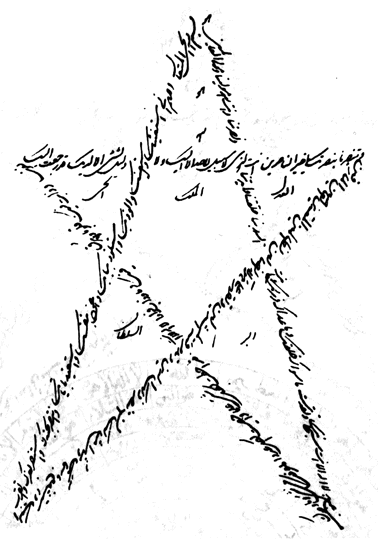Báb citáty a výroky
Báb: Citáty anglicky
“Truth shall be firmly established, while aught else besides it is sure to perish.”
XVII, 11
The Kitáb-I-Asmá
Kontext: Should a person lay claim to a cause and produce his proofs, then those who seek to repudiate him are required to produce proofs like unto his. If they succeed in doing so, his words will prove vain and they will prevail; otherwise neither his words will cease nor the proofs he hath set forth will become void. I admonish you, O ye who are invested with the Bayán, if ye would fain assert your ascendancy, confront not any soul unless ye give proofs similar to that which he hath adduced; for Truth shall be firmly established, while aught else besides it is sure to perish.
Epistle to Muhammad Sháh
V, 8
The Persian Bayán
XVI, 19
The Kitáb-I-Asmá
Kontext: O ye that are invested with the Bayán! Denounce ye not one another, ere the Day-Star of ancient eternity shineth forth above the horizon of His sublimity. We have created you from one tree and have caused you to be as the leaves and fruit of the same tree, that haply ye may become a source of comfort to one another. Regard ye not others save as ye regard your own selves, that no feeling of aversion may prevail amongst you so as to shut you out from Him Whom God shall make manifest on the Day of Resurrection. It behooveth you all to be one indivisible people; thus should ye return unto Him Whom God shall make manifest.
XVI, 19
The Kitáb-I-Asmá
Kontext: Those who have deprived themselves of this Resurrection by reason of their mutual hatreds or by regarding themselves to be in the right and others in the wrong, were chastised on the Day of Resurrection by reason of such hatreds evinced during their night. Thus they deprived themselves of beholding the countenance of God, and this for no other reason than mutual denunciations.
XVII, 11
The Kitáb-I-Asmá
Kontext: Should a person lay claim to a cause and produce his proofs, then those who seek to repudiate him are required to produce proofs like unto his. If they succeed in doing so, his words will prove vain and they will prevail; otherwise neither his words will cease nor the proofs he hath set forth will become void. I admonish you, O ye who are invested with the Bayán, if ye would fain assert your ascendancy, confront not any soul unless ye give proofs similar to that which he hath adduced; for Truth shall be firmly established, while aught else besides it is sure to perish.
XVI, 19
The Kitáb-I-Asmá
Kontext: O ye that are invested with the Bayán! Denounce ye not one another, ere the Day-Star of ancient eternity shineth forth above the horizon of His sublimity. We have created you from one tree and have caused you to be as the leaves and fruit of the same tree, that haply ye may become a source of comfort to one another. Regard ye not others save as ye regard your own selves, that no feeling of aversion may prevail amongst you so as to shut you out from Him Whom God shall make manifest on the Day of Resurrection. It behooveth you all to be one indivisible people; thus should ye return unto Him Whom God shall make manifest.
Dalá’Il-I-Sab‘ih
Tablet to ‘Him Who Will Be Made Manifest’
XVIII, 3
The Kitáb-I-Asmá
VIII, 1
The Persian Bayán
I, 1
The Persian Bayán
Dalá’Il-I-Sab‘ih
Dalá’Il-I-Sab‘ih
VII, 19
The Persian Bayán
Tablet to the First Letter of the Living
XVI, 19
The Kitáb-I-Asmá
XVII, 2
The Kitáb-I-Asmá
VI, 4
The Persian Bayán
V, 14
The Persian Bayán
XVII, 2
The Kitáb-I-Asmá
VIII, 9
The Persian Bayán
Dalá’Il-I-Sab‘ih
XVII, 15
The Kitáb-I-Asmá
Second Tablet to ‘Him Who Will Be Made Manifest’
Tablet to ‘Him Who Will Be Made Manifest’
